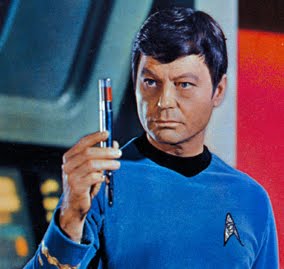
Proletariatron: an ideologue, infatuated with Marx, with a lingering sense of spirituality, having curiously developed her views in India. An Oxford PhD Candidate & radical feminist, Proletariatron emphasizes the negative effects of capitalism on human happiness, and believes strongly in a post-capitalist society. When Proletariatron first met Doctor Fiction, she explained that she was not from the area, but rather from a small town outside of London; playfully asking “Have you heard of Oxford?”
Doctor Fiction: a pragmatist, disenchanted with politics, believing that the practical horsetrading & dealmaking of politicians override any coherent ideological approach. Often confusing centrism with objectivity, Doctor Fiction advocates a fine balance as essential, that the entrepreneurial spirit can thrive only with effective, good government. He has lived in both rural peripheries and cosmopolitan urban jungles; he trusts no one.
DEBATE QUESTIONS: Was POL POT a Communist?

Proletariatron
So I agree that Pol Pot was a very dangerous man…pervert left in the name of communism just like genocidal villains of Hitler, Mussolini, Bush, Pinochet, Suharto, Nimeiry in the so called liberal world and regimes supported by the American liberal world!
Doctor Fiction
Is it that ideological movements tend to be used as vehicles of political agents – who attempt to apply a set of ‘universal beliefs’ in a heterogenous reality – OR that ideological movements tend to demand an untenable adjustment of human behaviour that is radical and bound to fail?
I’d say Pol Pot had both these perdicaments. An unwavering obsession with a ‘true form of communism’ that was not humanly possible & the falacy of composition: that what works in one context should be applied successfully everywhere creating a homogenous/pure state.
I’d say that formula has been used by others you’ve alluded to, with destructive results as well…
Proletariatron
First there is nothing which is non-ideological and apolitical. The problem arises when a so called ‘enlightened’ claim to act as a ‘vanguard’ and further claims that he/she knows much better than what is in the ‘best interest’ of the ‘people’. Now, this assertion might be true or might be false depending upon a certain context. For example, the ‘initial’ years of Soviet Union, China and liberal welfare state in Europe delivered good results for the people although those forms of state were actually formulated by an enlightened state elite.
Now, Marxism believes in ‘concrete analysis of concrete situations’. The problem arises when someone tries to imitate/mimic Soviet or Chinese style communism in their own country without properly analysing the concrete situations in their own country like the nature of society, relations of production, analysis of the property owners, analysis of those who are creating surplus, how those surplus are accumulated by the ruling classes, what is the revolutionary consciousness of the working people and other marginalised people/underdogs in the society etc.? The disaster like Polpot or other forms of violent regimes in the non-communist world become a reality when the ruling elite tries to go for their ‘ideal model of governance/policies’ as an ‘authoritarian imposition from above’ than a ‘hegemonic formation from below’. In other words, in trying to wish fulfilment of their political goals/desires they tend to impose their ideological world-view with coercive tactics than politically convincing and mobilising the people under its banner. The crisis of hegemony and lack of ideological confidence to win the people politically only results into a violent/authoritarian dictatorship.
Doctor Fiction
Dear Proliteriatron,
From your perspective, it is true that there is nothing that is non-ideological and apolitical but you are a member of the elite.
UNFORTUNATELY, the division of labour stipulates that there will continue to be only a small percentage of people who form a political intelligential who make decisions, this is regardless of the system in question; liberal, neocon, marxist. Not everyone cares about politics on an academic level. Marxism, like all political ideologies, is far to complicated to NOT require imposition from with a hierarchical political structure. There just isn’t enough time in a work day to read Karl Marx and survive.
EX: Pol Pot went to Science Po where his ideas crystalized, it was undoubtably frustrating to return to Cambodia where he found only enthusiasts for power who agreed to a coalition using “a” form communist ideology as a vehicle for change. Marxism like any major world religion; gains part of its power from being able to attract people who have completely divergent views under one tent. How it is applied in practice becomes disagreeable because the reality is far more complicated than the neatly spelled out interpretation of Marxism or the Koran. Pol Pot was an elite with an interpreted vision of true communism but the application produced something horrendous because in practice reality is far more complicated than any ideology is willing to admit.”Hegemonic formation from below” reguires a homogenisation of political discourse that is not tenable nor desirable, I’d say.
Why should people be beholden to a select few Ivory Tower dreamers who believe they know what’s best for a local community? Certainly some degree of prescription from the centre is useful for everyone to have a fighting chance at prosperity BUT a communist/religious/neocon movement requires a high degree of centralized control. Marxism requires people to under value basic human tendencies; affinity for ones lingusitic, national identity in favour of conceptualizing the world along class based struggle. That’s A WAY to interprete the world but not necessarily THE WAY.
Marxims today; I suppose you could argue that technology can now fasciliate a more effective dialogue between people and their state and that those voices would be embraced to give the proletariate bettter control over their lives BUT the FACT REMAINS; the division of labour stipulates that only a few people actually care/have the time to consider the overarching mechinations of their state. The general public’s instinct is for gradual change not wholistic reforms. In other words, the people want PRAGMATISM. This is why I’m sure you have found that mobilising the people under a communist banner is rather difficult (partly because there is so much to consider in an academic context AND so LITTLE TIME to consider it all) BUT ultimately, as I argue, like religion; there is always someone how can point to an application of a given ideology that went horribly wrong: ie. the Crusades, Pol Pot, Spanish Inquisition, Pinochet. Moderate approaches to change seem more prudent.
Proletariatron
Thanks for your elaborate reply…however, it seems that you are still pre-occupied with old type communism and the problems within it. My argument is that we cannot repeat the mistakes of old communism of 20th century and neither can we afford to blindly follow/imitate/mimic them. 21st century communism would be very different and a progressive task for the organic intellectuals of communist movement is to build an alternative credible new communist project which can attract the imagination of the people. Moreover, any new communist project cannot be detached from the wishes of the ‘people’. For such a project the political strategy of hegemonic mobilisation need not have to homogenise but rather making out a Universalist political project while acknowledging the heterogeneity of population and respecting the divergent opinions of the people and mobilising the diverse forms of struggles against a common political enemy (See Ernesto Laclau).
The Leninist principle of democratic centralism was precisely to listen, debate and discuss the divergent opinions. It is another Doctor Fictioner that the Leninist model of transparent democratic centralism was never implemented in most places ruled by the communists, which in fact produces all kinds of deviations and problems. For example, in the name of democratic centralism, it was always centralism which was promoted and the democratic content of people’s opinions/voice/dissent were ignored. However, democratic centralism is always run by the democratic provision of government by majority unlike the bourgeois democracy where the minority ruling class rules at the expense of majority. So, liberal democracy has given us one vote and just a chance in every four-five years to change the government but no other rights to influence policies. Rather we know how the corporates have tremendous influence in everyday government policy making. Also, particularly under a neoliberal regime, we are witnessing a bourgeois counter-revolution against the working class gains of last five decades with privatisation of national assets, wage cuts, retreat of welfare state etc. Now, in this context, liberal democracy is only a formalistic and instrumental form of democracy without a substantive democracy, without equal opportunities because of income inequality etc. Now, a new communist project has to absolutely value the principle of both democracy and equality. The one-party dictatorship in erstwhile communist experiments were absolutely a bull-shit and a new communism has to operate within a multi-party democratic system. Finally, a new communism has to generate ‘incentives’ for the working people and in such a society, only ‘work’ would be given as a reward. If you don’t work, you won’t get any money! In other words, a new communism has to be based on a new form of ‘exchange’—which is ‘mutual aid’ (read Kojin Karatani, “Transcritique: On Kant and Marx” [London: The MIT Press, 2003] for such a model of a possible new communism)…You can also listen to Karatani in youtube and be familiar with his (new) communist project.
